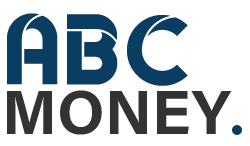The forex market has come a long way since the Second World War, after which the economy of several European nations took a beating. It was only with the aim of helping these economies recover that the Bretton Woods Accord came into effect in 1944. While the accord came with multiple resolutions, it was the pegging of foreign currencies to the U.S. dollar that made the biggest impact on the economies of the time.
Pegging
A pegged exchange rate or a fixed exchange rate comes into effect when the value of a given currency is fixed against the value of another currency, or against a different value of measure such as gold. The Bretton Woods Accord resulted in the pegging of currencies to the U.S. dollar, and their value remained dependant on the value of the dollar. The U.S. dollar, on the other hand, was pegged to price of gold. It was the U.S. government’s obligation to hold adequate gold reserves to account for the currency in circulation.
The Rise of Eurodollars
By the end of the Second World War the Soviet Union had become an important producer of oil. Since it sold the oil to foreign countries, it received payments in U.S. dollars. Given the hostilities between the two superpowers during the Cold War era, and worried about their bank accounts being seized by American authorities, Russians starting making huge U.S. dollar deposits in European banks. The eurodollar market did not take long to grow, going on to become a major source of lending capital.
Post the 70s
Trading in currencies was majorly limited to large multinational corporations until the early 1970s. Much of the trading focused on individual stocks and commodities, and trading for investment was not quite in vogue. By the early 1970s, high inflation levels and a looming energy crisis caused a rapid rise in the price of gold, which did not do any good for the value of the U.S. dollar.
When Nixon did away with the gold standard linked to the U.S. dollar in 1971, it led to free-floating exchange rates and resulted in the over-the-counter (OTC) market that we see in this day and age.
OTC and Exchange Based Trading
After the end of the gold standard, the value of free-floating currencies depended on market conditions and a bunch of other factors. The foreign exchange market as we know it today started taking shape in the 1970s. The Chicago Mercantile Exchange (CME) was the first exchange to offer currency trading, with the launch of the International Monetary Market (IMM) in 1971.
Now, this market is divided into multiple access levels, with the interbank foreign exchange market at the top. This includes some of the largest banks as well as securities dealers. Interbank spreads, or the difference between bid and ask prices, are rarely disclosed to the outside world, and non-banking entities usually need to pay high service fees if they wish to trade in this market.
Market-Makers and Internet-Based Trading
Recent technological developments in different realms have led to an increasing number of brokers developing web-based currency trading platforms. These entities serve as market-makers and they provide two-way quotes for all supported currency pairs.
Several predominantly online FinTech companies now give individuals and businesses easy means to make cross-border transfers. Examples of top international money transfer companies include TransferWise, OFX, World First, CurrencyFair and HiFX. While these companies provide largely similar services, there are some differences in certain features such as “Request international funds transfer” via only email addresses. Comparing them ahead of time may lead to savings in different ways.
The Future
One way to send and receive funds that is gaining ground quickly is through the use of second generation mobile phones that are still commonly used in different parts of Africa, South America, and Asia. The fact that virtual cryptocurrencies such as Bitcoin and Litecoin are gaining in popularity also leads one to believe that this medium may disrupt the forex market in not too distant a future.

